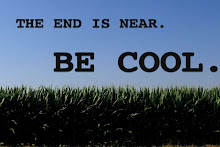
"...the sky flashes, the great sea yearns. We ourselves flash and yearn..." John Berryman, the poet, said that ("Dream Song 14"). He said a lot of other things too, before jumping off a bridge in Minnesota and adding the final question mark to his body of work. Berryman, man... I recently overheard a Writer's Workshop faculty member say that Berryman was the last American poet worth really studying. I don't agree, necessarily. But I was bit by the Berryman bug at a time - thirteen years ago - that I was heavy into Buddhism and the Black Arts Movement. Something about Berryman just seemed to land perfectly between those two things for me. So I bought the Dream Songs and have been studying them ever since.
Anyway, I'm writing a story about lightning bolts, autopsies, and Nagasaki now. So everywhere I look, I see things that remind me of lightning - hence the photo above. When schizophrenics do this, it's called referencing, and it's a pathology. It's a feature of psychosis, megalomania, paranoia, and narcissism, in general. I come from a school of thought that says that these things in moderation are not necessarily bad, though, despite what the DSM might tell you. I mean, these phenomena can also be viewed as ephemeral shades of the human experience that come and go...
"Thus shall you think of all this fleeting world, A star at dawn, a bubble in a stream; A flash of lightning in a summer cloud, A flickering lamp, a phantom, a dream." The Buddha said that (Diamond Sutra #23).
Anyway, I recently had a helpful discussion about this with my friend from the Writer's Workshop, Teal Minton. Teal and I were arguing about "How do you teach fiction writing to undergrads - or anyone - anyway?" We ended up getting into a comparison of voice/aesthetics versus scene- or character-driven prose. And eventually, we found ourselves talking about Jungian individuation. Teal said it best: "Our job is to get them to find something to love about writing, to get them to start getting curious about their own voice, so they can write more and more honestly and true to their own voice. I mean, that's been my personal process..."
It's been my process too. Originally, when I first started the Workshop, I was worried that I didn't know enough nuts & bolts of fiction writing - that I had lucked out during the application process, basically. But, no. Now I can see that good, indelible writing hinges largely on fidelity to the voice, a product born of the writer's becoming more and more indelibly himself/herself on the page, and less concerned about the aesthetics of the superego. That's how Berryman - and anyone really great wrote/writes. So, yeah, there's a little megalomania in that. There's some narcissism, to be sure. Some indulgence, no doubt.
But it's also a true creative process, dynamic and, at times, terrifyingly humbling. At least it's not the Imitation Game, with all the murderous safety it promises. I know now that my voice is not a liability. It's not something to spray chemical death on. And the Workshop is a stellar environment for learning this. I was lucky, thirteen years ago, to be introduced to Berryman (and a lot of other writers and poets) by a poetry teacher who prized the voice: "Berryman's the finger, not the moon, if you feel me."


No comments:
Post a Comment